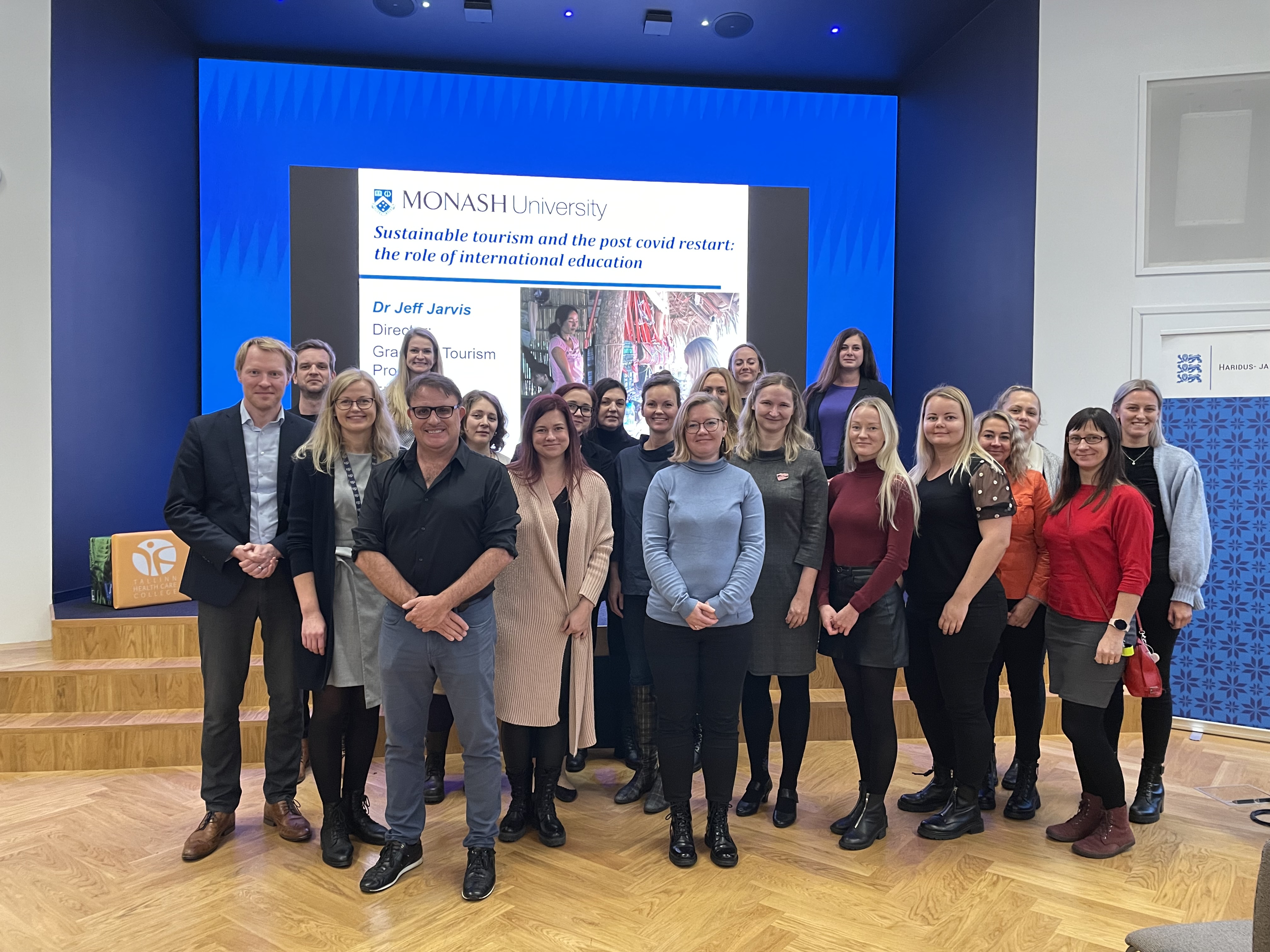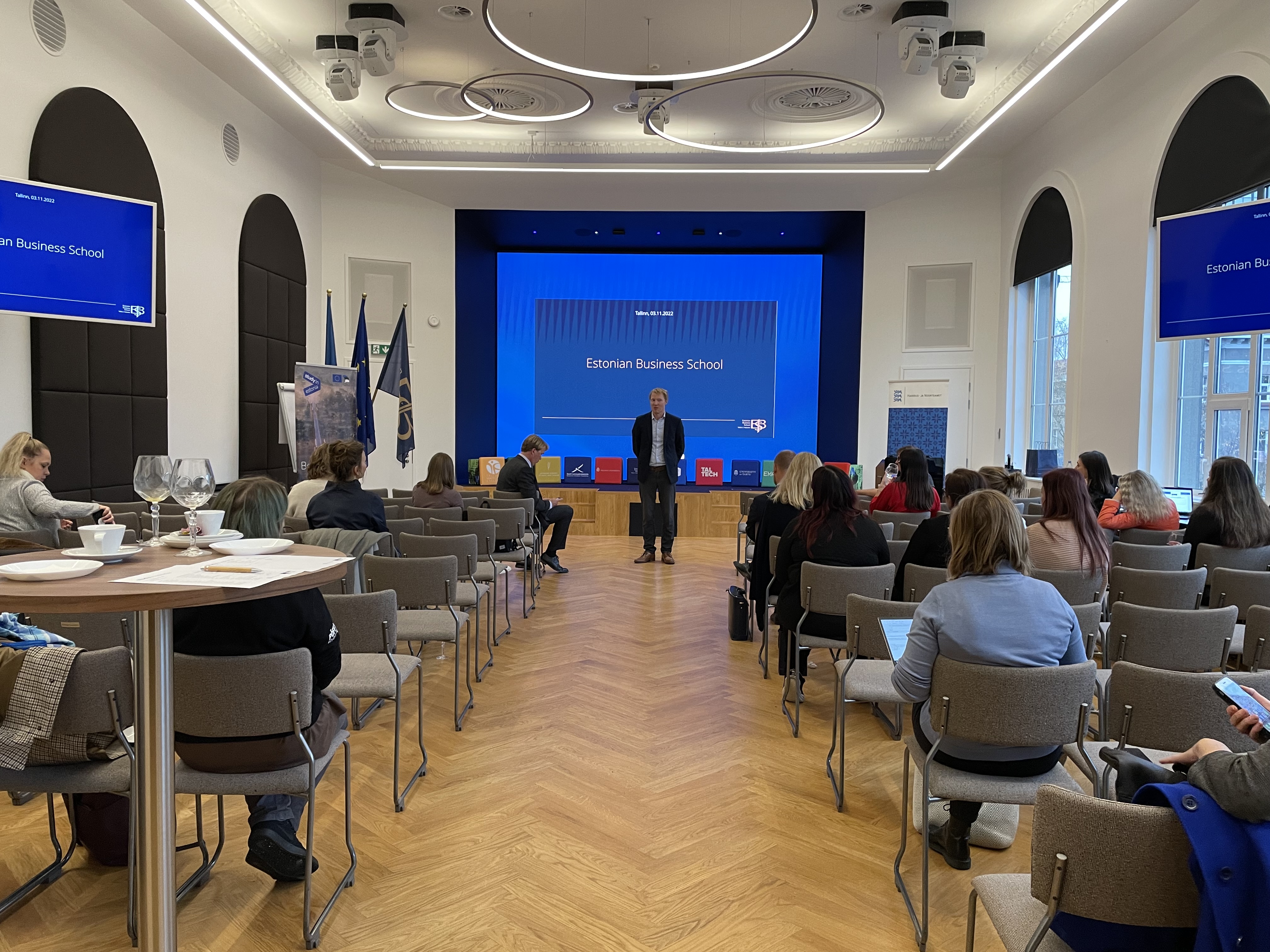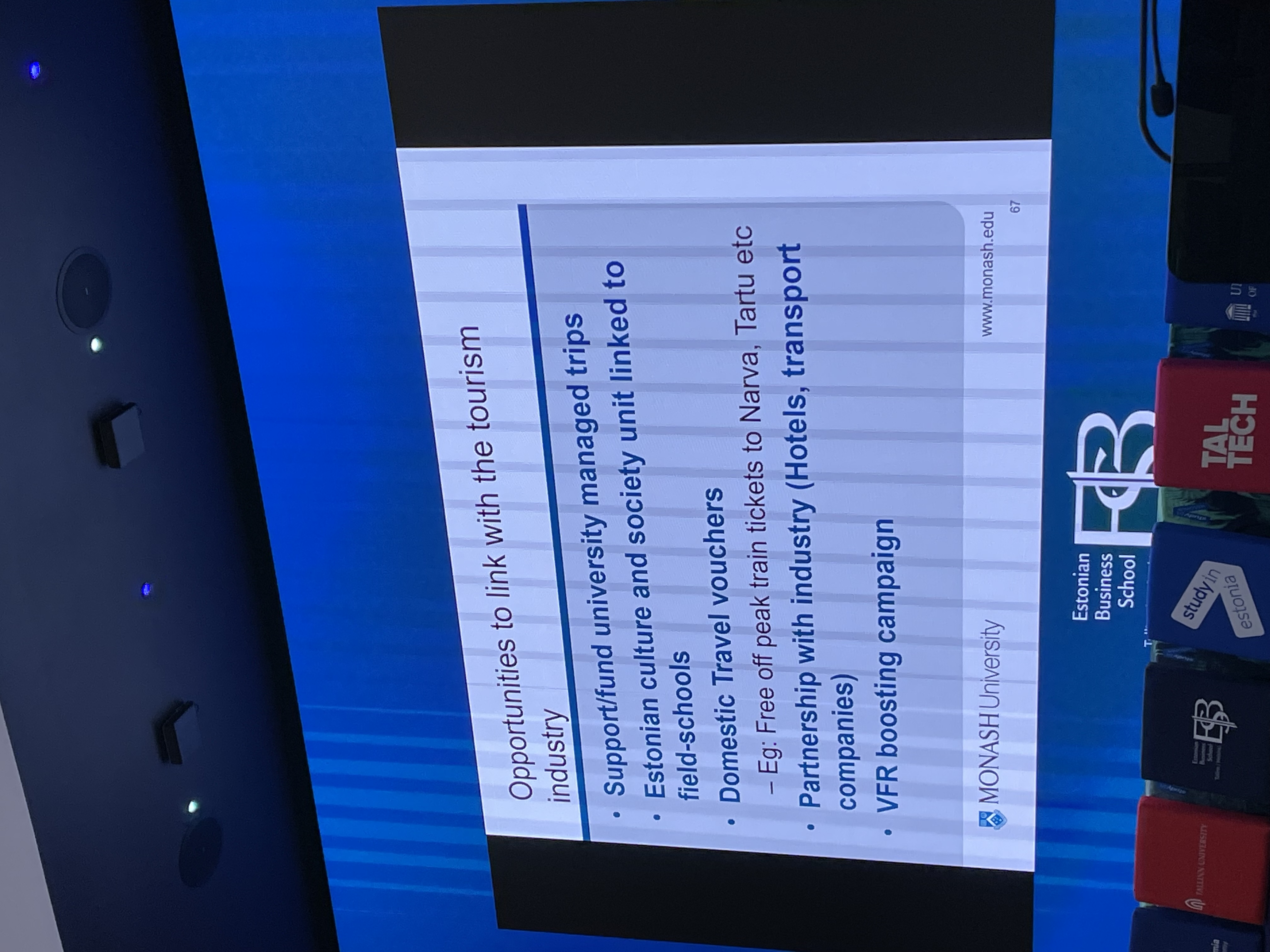Various studies and reports show that the contribution of foreign students to the Estonian economy is growing year by year. The Study in Estonia seminar, which took place in the EBS Hall on November 3rd, connected the academic world, the field of tourism, and economic development, focusing on the role of foreign students in Estonian society. EBS visiting professor Jeff Jarvis, whose research focuses on international students and their impact on economy as well as sustainable tourism, gave a comprehensive presentation.

Dr Jeff Jarvis with marketing staff of Estonian universities. Foto: Piret Puuorg
Dr Jeff Jarvis with marketing staff of Estonian universities. Foto: Piret Puuorg
"It is impressive how well EBS, as a small university, has integrated international students into student life,” notes Eero Loonurm, the organizer of the event, Head of International Marketing of Estonian Higher Education at the Education and Youth Board (HARNO). According to him, the impact of foreign students on society during and after their studies, including their contribution to our labour market, is significant.

The seminar was opened by Eero Loonurm (Head of Study in Estonia). Photo: Piret Puuorg
The seminar was opened by Eero Loonurm (Head of Study in Estonia). Photo: Piret Puuorg
EBS has foreign students from 44 different countries. "We have many students from Finland, but there are also surprisingly many from Italy, France and other countries," says EBS Rector Meelis Kitsing. "Estonia is not a well-known destination or the first choice country for studying abroad. We have to work for it." Kitsing adds that the internationalisation of universities should not focus solely on degree studies, but also include students for shorter periods. "We have experience with students who come for one semester but stay longer."
„Foreign students create a field of tourism with the highest multiplier in every country,” says Eero Loonurm. „Foreign students help create an international learning environment and contribute to internationalisation in the entire country. They also spread unique knowledge in relation to the rest of the world, precisely in those areas where we have a good reputation and high level of science. And of course, the local labour market needs them.”
„Professor Jarvis, however, looks at the picture in an even more complex and wide way,” adds Loonurm.
The pandemic provided an opportunity to rethink tourism
The global visitor economy was one sector that was significantly impacted by COVID and the rolling lockdowns around the world commencing in early 2020. At the end of 2022 the industry is still in recovery mode with global arrivals, air traffic and yield at levels still well below 2019. The pandemic however gave the industry the opportunity to 'rethink tourism' and consider how it could become more sustainable going forward, explains Professor Jarvis in his presentation "Sustainable Tourism and the post covid restart": The strategic role of international education.
The first part of the seminar reviews the current state of the industry and the increased focus on sustainable - regenerative visitation. „Segments that are longer stay and higher yield are seen to be increasingly attractive as they provide greater economic linkages to local economies. Such segments now include digital nomads, working holiday makers and international students,” Jarvis explains.
The second part of the seminar considers the strategic role of international education in the visitor economy. „International students have proven to be long stay, counter seasonal, high yield visitors who have the opportunity to travel widely domestically within the host destination,” Jarvis says. „They also are strategic visitors in that they generate "visiting friends and relatives" traffic, act as unofficial "brand ambassadors" for the host destination and link to repeat visitation and future employment outcomes.”

Opportunities to link international students mobility with tourism Industry and economy. Photo: Piret Puuorg
Opportunities to link international students mobility with tourism Industry and economy. Photo: Piret Puuorg
In the context of increasing global mobility, international university students have previously been identified as a high yield and beneficial visitation market.
A quantitative study of 289 short-term international university students in Estonia confirmed that they are high-yield, long-staying, low-leakage, counter-seasonal visitors who stimulated significant visiting friends and relatives’ tourism. „The economic benefits derived from these students spread throughout Estonia and the wider Baltic tourism economy,” Jarvis explains. „Strategically, they demonstrated a strong capacity to generate positive word of mouth and become brand ambassadors.”
Who is Professor Jeff Jarvis?
Professor Jarvis has been a guest lecturer and friend of the Estonian Business School for more than 20 years. He regularly sends Australian students here as exchange students, teaches here and does research. He has initiated collaborative projects between EBS and Monash University and has brought together topics that connect study migration, tourism, economy, and society.
Study in Estonia is a cooperation initiative that introduces Estonia as a country offering high quality higher education opportunities. All Estonian institutions of higher education, at which it is possible to study in at least one program that is taught fully in English and is internationally recognised, can participate in the programme. The activities of Study in Estonia are coordinated by the Estonian Education and Youth Board in the framework of the Dora Pluss program, which is being realised via the European Regional Development Fund (ERDF) and with the aid of EU structural support.
Additional information:
Estonian Business School. November 2022. "Study in Estonia: It is impressive how well EBS, as a small university, has integrated international students into student life"
Journal of Baltic Studies. 2020. Dr Jeff Jarvis (Monash University). ‘Study in Estonia’: the strategic implications of hosting international students on Estonia’s tourism economy
Statistics Estonia. Analysis of the economic impact of international students
